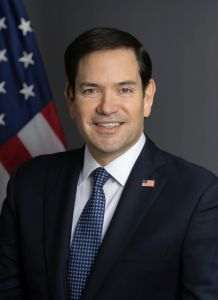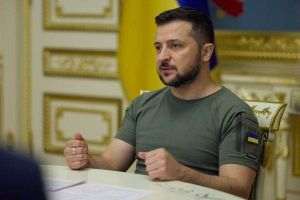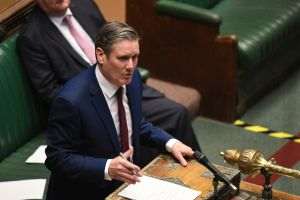What do we do if one of the fundamental institutions of democracy, such as Parliament, for instance, comes to a moment of collective loss of mind and makes decisions that are a threat to national security? Well, this is a question we all are forced to ask ourselves following The Senate's attempt to change the statute of The National Bank.
The matter does, of course, imply a great deal of theory. And theory, if it is well structured, always supplies the right answer. Democracy, as a system of government, is based on the simple and healthy idea that absolute power absolutely corrupts. Consequently, for reasons of functionality and caution alike, it is better to split power among three branches - the executive, the legislative and the judiciary - and to make it so that each of these branches has some tools of controlling the other two. Above all three of them there is, of course, the single and authentic holder of the power: the nation, the community of those who freely and sovereignly organize their lives into a country. In other words, if one of the three branches drifts away from course, the other two should be able to unite their forces to rebuild the balance and stop the drifting. If, for instance Parliament itself, by some legal measure, attempts at the national security, the executive and the judiciary should react to prevent such abuse.
However, what is happening in our make-believe democracy?
The recent initiative of the senators, who thought it would not be a bad idea to expand their own version of democracy to envelop The National Bank, too, is not at all distinct from the totalitarian ambitions and patterns of thought specific to many of those who have or used to have the power in this country.
The National Bank's independence in deciding the monetary policy, with all its consequences, is the thorn that has hurt many prime-ministerial egos and ruined many plans by governmental officials over the past 15 years. Those who don't remember should read again the irritated statements of The Vacaroiu Government who would every now and again complain to President Iliescu about The National Bank's lack of cooperation within the grandiose plans to produce false economic growth, based on stocks and low-quality products. They should read again the laments of all those wannabe economic "experts' whining about "the expensive credit' that The National Bank was "guilty' of. What marvels of economic growth they would have achieved, if the money printer had been placed at The Government's disposal! Romania has not had one single government over the past 15 years - except, of course, for the one chaired by Mugur Isarescu himself - that did not attempt to terminate The National Bank's independence for reasons that had nothing to do with the national interest, but did have everything to do with personal or party interests. History is repeating now, before our very eyes, only this episode is the gravest of all. All the more because of the political context surrounding it. In light of the not-so-great results that the current administration scored in the recent local elections, anyone may wonder whether our current leaders have decided to relaunch their "miraculous social programs' in a bid to soothe, in just a few months, the people who are obviously mad at them. If this is the case, then a handy solution would be to print some money without the reserves to back it. But that would require an obedient National Bank... If this is where the recent senatorial initiative is headed, then it is indeed an attempt at national security. One that must be stopped before it produces its ill effects.
Under The Constitution, the main person in charge of national security is the President. He is also the guarantor of the fundamental charter that sanctions the independence of The National Bank. It is therefore his responsibility to lucidly intervene to put an end to the sleep of reason that seems to have dulled the senses of the other State institutions.
Naturally, the press, as one of the public guardians of freedom, democracy and community interests in a democracy, plays an essential part in pointing out possible drifts or abuses by any of the branches of power.
In witness thereof, we have pointed out, signed and done our duty!























































